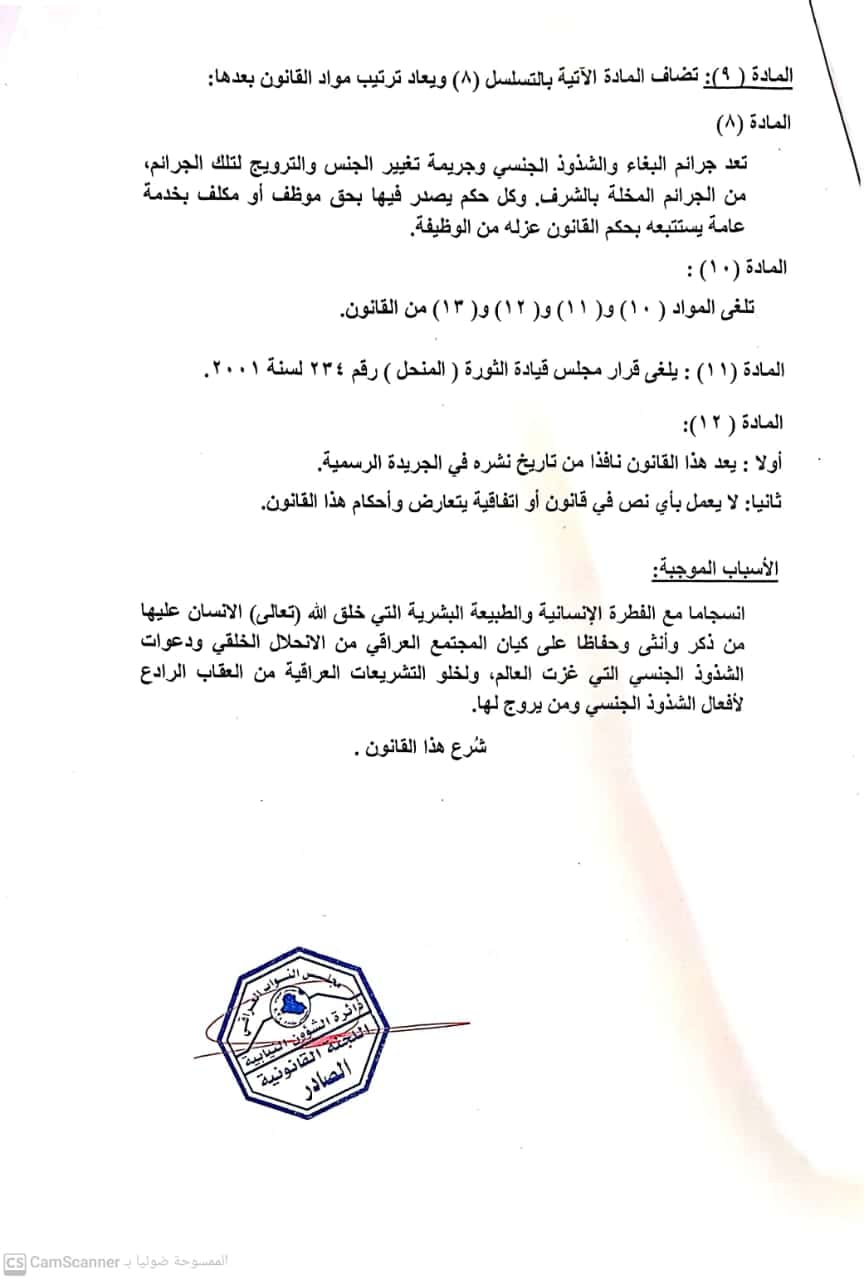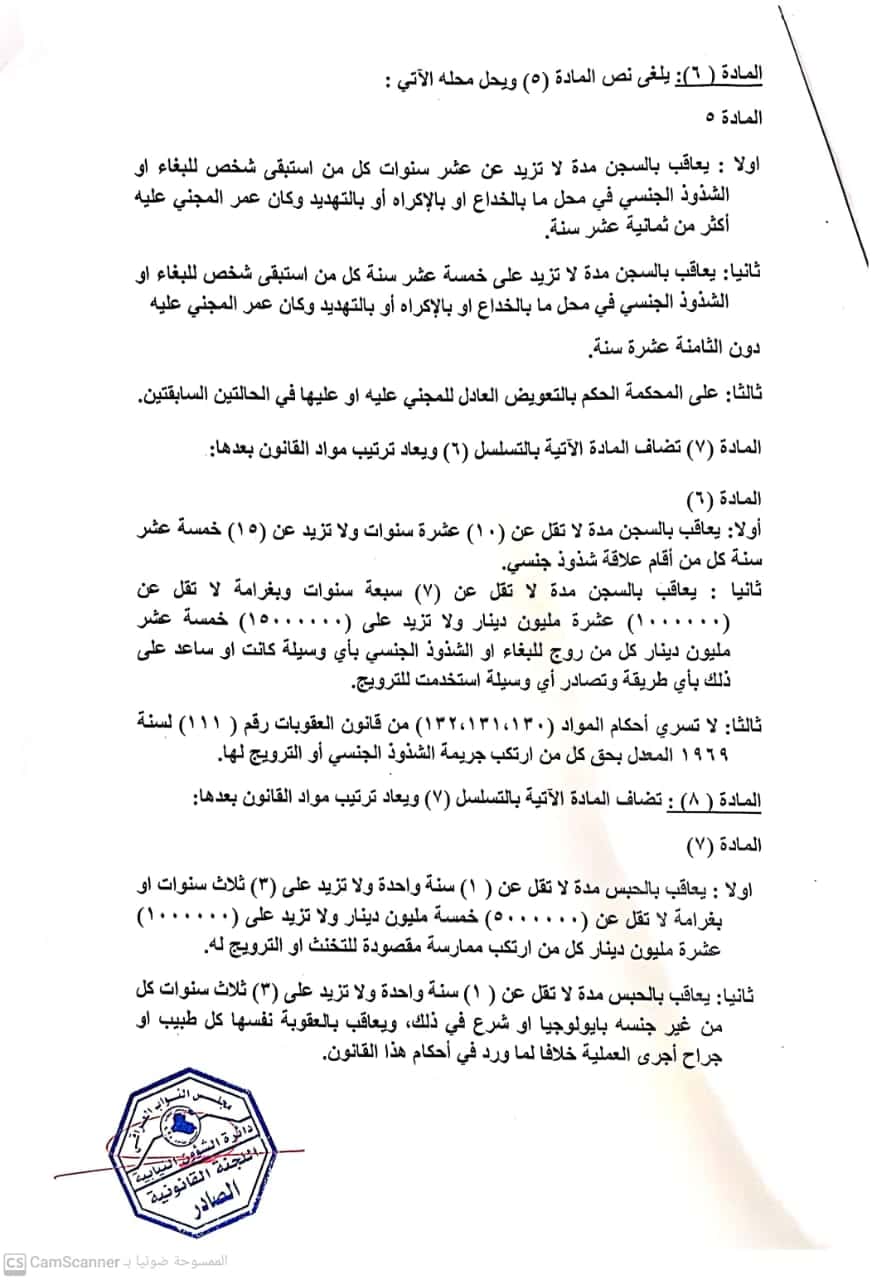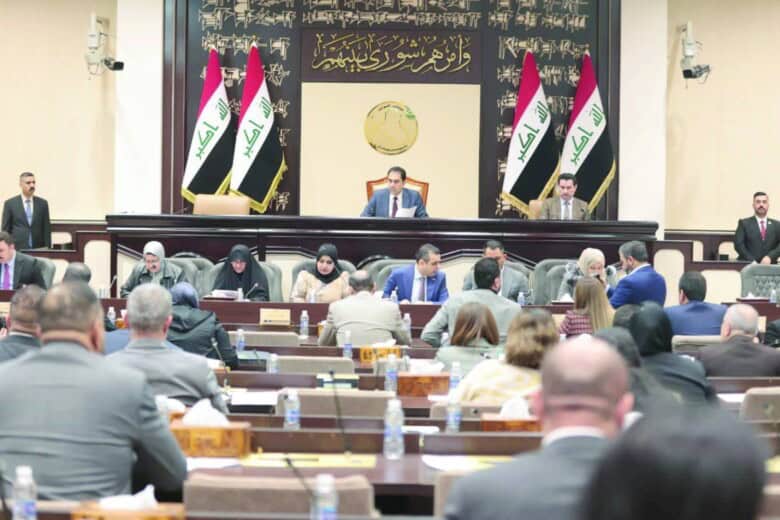The Parliament passed an amendment to the Anti-Prostitution Law today, Saturday, to include “homosexuality,” wherein the current version includes imprisonment penalties of various durations for offenders instead of the death penalty and life imprisonment in a previous version, which sparked widespread controversy within the local community.
The Parliament sought to amend Law No. 8 of 1988 with the aim of adding some practices that were not clearly defined or widespread at the time the law was enacted, including wife-swapping and homosexuality.
🚨قام البرلمان العراقي اليوم بإقرار قانون معدل ينص على ما يلي:
▪️تعاقب المثلية الجنسية بالسجن بين ١٠ و١٥ سنوات.
▪️يعاقب بالسجن مدة لا تقل عن ٧ سنوات من يروج للمثلية بأي وسيلة كانت أو ساعد على ذلك.
▪️يعاقب بالسجن بين سنة و ٣ سنوات كل من ارتكب فعل "التخنث" أو روج لذلك. ( التعابير… pic.twitter.com/4c6kjg3TOy— ضوميط القزي دريبي | Doumit Azzi Draiby (@Doumit_Azzi) April 27, 2024
Activists on social media criticized the decision, affirming that it only increased the years of punishment, while others argued that it would become a reason for migration to Europe.
https://twitter.com/ali93tm/status/1784261234235253055
Iraq, where the majority are currently Muslim, does not criminalize same-sex relations. However, vague provisions in the Penal Code have been used to target the LGBTQ+ community.
البرلمان العراقي يصوت على قانون "مكافحة البغاء".. هل يتضمن هذا القانون "البغاء السياسي" ويشمل المسؤولين ممن لديهم علاقات غرامية مع (الفاشنستات) و الملاهي الليلة؟.
#ام_فهد— Marwan Mohammed (@Mohmmed52Ali) April 27, 2024
During the past few months, there has been significant movement in the country to combat sexual deviance, and in Iraq in general, there are no clear and explicit legislations regarding this issue. Articles 393 and 394 of the Penal Code, which punish with life imprisonment anyone who practices adultery with a female or sodomy without their consent, do not address the issue of consensual same-sex relations.
The amendment includes penalties of imprisonment and fines not exceeding five million Iraqi dinars, and imposes life imprisonment or death penalty for those proven to engage in sodomy.
Member of the Parliamentary Legal Committee, Raed Al-Maliki, stated during a press conference held in the Parliament building, attended by other MPs today Saturday, and followed by “Al-Alam Al-Jadid,” that “the Parliament voted today on amending the Anti-Prostitution Law,” noting that “this law includes many provisions, such as punishing practices resembling women, biological transformation, promoting sexual acts, and banning the activities of organizations promoting prostitution and sexual deviance.”
On his part, MP Hassan Salem said during the same conference, “The law is considered one of the important laws, and we reject any infringement on Islam and society,” adding that “passing the law is a blow to the greatest devil who sought to spread sexual deviance in Iraqi society.”
It is worth mentioning that the MPs demanded in a previous session the necessity of legislating an amendment to the Anti-Prostitution Law in line with the social values of the Iraqi people and to address the cases covered by the Iraqi Penal Code, and to legislate it to criminalize any act that promotes, supports, or endorses homosexuality. In addition, they demanded the inclusion of a recommendation to close any organization or institution that promotes a culture of sexual deviance and homosexuality, and the amendment of the definition of prostitution by adding the terms sexual deviance and gender to the law. They also called for banning the use of the term gender in state institutions and civil society organizations, and criminalizing gender-crossing behavior, whether in clothing, appearance, or the use of hormones contrary to human nature. Furthermore, parliamentary demands included controlling social media platforms that promote ideas of sexual deviance, and advocating for adopting the jurisprudential and legal opinion in determining the types of penalties covered by the law and the importance of legislating the amendment away from external pressures while filing an official protest with diplomatic missions that demanded not to proceed with its legislation.


إقرأ أيضا





